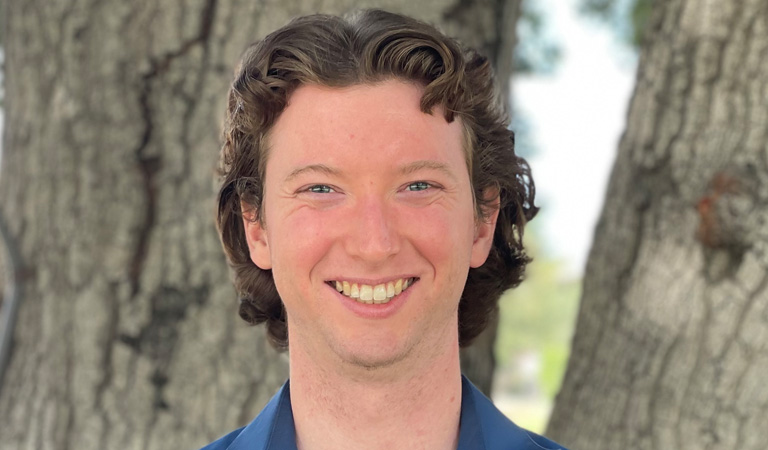776 Fellowship Supports Harvey Mudd Student’s Ocean Conservation Startup
July 20, 2023
Ryan O’Hara, a Harvey Mudd College student double majoring in environmental robotics and computer science/mathematics, is one of 20 remarkable young leaders with the opportunity to spend two years working on their climate-related startup with the help of a 776 Fellowship. The fellowship program from Alexis Ohanian (Reddit co-founder) awards young people a $100,000 grant and access to a network of investors and founders to work on their companies fighting climate change.
“The team at 776 is tasked with backing exceptional founders as early as possible in their journey, giving potential founders the space and time (and money) to build something great,” states the 776 Fellowship website.
O’Hara will pursue his startup Apsis Robotics, which is focused on carbon capture technology to help the environment. He was inspired to launch his business after taking the spring 2022 Entrepreneurship class at Harvey Mudd.
“With his passion for climate change and his entrepreneurial abilities, I honestly believe he will change the world,” said course instructor Kash Gokli, Oliver C. Field Professor of Manufacturing Practice and Engineering Economics and inaugural director of entrepreneurship initiatives.
O’Hara has an extensive research background in climate change. He has conducted research at the University of Arizona, the University of Washington, NASA and the Sea Education Association. He has participated in a data gathering expedition with the Sea Education Association and developed new theoretical climate-related technologies with NASA. He has disseminated climate research information by speaking at the recent United Nations COP27 climate conference and collaborating on the United Nations International Panel on Climate Change 6th Assessment Report (as the representative of the Association of Polar Early Career Scientists, of which he is the youngest-ever co-chair). He was selected by the Astronaut Scholarship Foundation as a 2023–2024 Astronaut Scholar.
With a desire to apply his scientific expertise to real-world applications, O’Hara launched Apsis. Its flagship product, an autonomous engineered system, mitigates the effects of ocean acidification and supports vulnerable marine ecosystems. The company’s robots can sustainably convert carbon dioxide in seawater (one of the primary drivers behind ocean acidification) into calcium carbonate (a basic compound which naturally keeps seawater at a healthy pH), dramatically slowing local acidification and creating more habitable environmental conditions for nearby reefs and ecosystems.
O’Hara says, “We hope to work with and sell to coastal governments, near-shore aquaculture firms and ocean conservation entities—groups with a vested interest in mitigating ocean acidification—to effectively protect and restore marine life.
“In the long-term, I hope to scale this technology and use it to support and rebuild reefs and other nearshore ecosystems all around the world until our society achieves net negative carbon emissions,” he says. “I believe that one of the primary roles of climate technology is to support failing ecosystems and mitigate the consequences of climate change in the short-term until we’re able to develop and implement the long-term economic and social changes required to truly rebuild the environment, a mission that drives Apsis’ work.”
As a member of the executive team of the Association of Polar Early Career Scientists, O’Hara works with the UN on climate policy. “One of the major things I’ve learned from this work is that the oceans experience some of the most severe consequences of climate change but seem to be neglected in global climate policy and talks. Ocean acidification, in particular, is an outcome of climate change that isn’t discussed enough: if our oceans continue to acidify, we’ll see the complete collapse of countless marine ecosystems, which will threaten the food security of billions of people, leave coastal communities more susceptible to ocean storms and flooding, and devastate Earth’s biodiversity. As a result, I wanted to use my knowledge of this space and technical expertise to fill this perceived gap in the climate movement’s work, and so Apsis was born.”
During his last semester before graduating, O’Hara will participate in Harvey Mudd’s entrepreneurship Clinic Program while also working on his startup and participating in the 776 Fellowship program.
